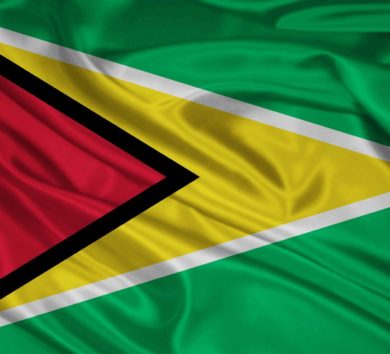
Caribbean Public Health Agency to explore vaccine hesitancy in region

The Caribbean Public Health Agency (CARPHA) is currently carrying out research, alongside the Pan American Health Organization (PAHO), checking into the reasons for COVID-19 vaccine hesitancy among the general population in the Caribbean.
CARPHA will be researching the vaccine hesitancy among the general population, while PAHO’s research will be concentrated among healthcare workers.
This was revealed by CARPHA Executive Director Dr Joy St John, who was speaking during a recent online panel discussion produced by the Sagicor Cave Hill School of Business and Management entitled ‘COVID-19: Debunking Myths of the Jab’.
She disclosed that at the end of the research the team will be rolling out a public relations campaign to inform the people across the region about the vaccines now available.
“We are going to design messages and campaigns for the region, which are a response to these concerns,” St John told her virtual audience.
She also spoke about some people’s reluctance to take the new vaccines.
St John, who was involved in the Barbados response to the H1N1 pandemic and has done adult MMR catch-up campaigns, reported that she has never seen anything like the way in which Barbados and other countries in the Caribbean have geared themselves up and been prepared to deliver the vaccines for COVID-19.
HIGH PRAISE FOR ACQUIRING VACCINES
The CARPHA executive director gave high praises for the acquisition of the COVID-19 vaccines and roll out of the vaccination.
According to St John, “taking the vaccine, if you so choose to do, is perhaps the Caribbean’s best chance in finding the good balance between lives and livelihood and returning to economic activity. For those of us who have been given the privilege of access, because access is hard fought for, once we want to do it you should not walk but walk briskly or even run to get the vaccine”.
She disclosed that CARPHA has had the remit given it through its intergovernmental agreement and specific remits given from heads of governments, noting that the agency has been managing this through a health security perspective.
St John explained that, in addition to the surveillance perspective, “there is a perspective of getting governments to understand that those with NCDs are at greater risk”.
She said she has taken the COVID-19 vaccine and that, after taking Panadol,the next day she had recovered from all side effects.
“Usually, the reaction is short and sharp if you are going to have any effects at all,” she told those present for the webinar.

The CARPHA boss advised the webinar that her agency has been providing guidance to CARICOM member states and testing. She reported that CARPHA is not only doing PCR testing but, in collaboration with the University of the West Indies, has been testing for variants in addition to providing vaccine regulation.
According to St John, “it is best to use vaccines which have gone through an approval process and the best process is the WHO (World Health Organization) approval. The use of Covishield [AstraZeneca made in India], AstraZeneca (made in Korea), as well as the Pfizer is clear because they have been approved by WHO.”
“We do testing for all the variants, including the South Africa and the Brazil variants. The current vaccines that are being used in the Caribbean region have been tested against the variants.”
Dr Joy St John, executive director, the Caribbean Public Health Agency
She added that, “the testing for the variants that we have been doing and the samples that we have collected from over 17 member states have only so far revealed the UK variant. We do testing for all the variants, including the South Africa and the Brazil variants. The current vaccines that are being used in the Caribbean region have been tested against the variants.”
In the studies that have been published and peer-reviewed, the level of efficacy of the AstraZeneca vaccine has been quite high, said St John, adding that “we have started seeing that countries using AstraZeneca have seen a decrease in the hospitalisation”.
In addressing the lack of approval of AstraZeneca from Switzerland, the CARPHA executive director said she is going by the WHO’s global remit.
St John went on to address the notion of how many need to be vaccinated to achieve herd immunity.
“There is a lot of conjecture about this. It may be 75 per cent or more, we do not know,” she declared.
PANEL OF EXPERTS
The panel discussion was moderated by Dr Kenneth Connell, deputy dean of Internationalisation and Outreach and Clinical Pharmacologist in the triple accredited Faculty of Medical Sciences at the Cave Hill campus.
The other panelists were Dr Justin Robinson, director of the Sagicor Cave Hill School of Business and Management; Dr Karen Broome-Toppin, PAHO’s adviser on immunisation for the Caribbean Region; Dr Kim Quimby, lecturer in immunology at the George Alleyne Chronic Disease Research Centre, UWI Cave Hill campus and Curriculum Coordinator of the Caribbean Cytometry and Analytical Society.
The panel was completed by Dr Michelle Reece, assistant professor in the Department of Public Health, College of Health and Human Services at the Western Kentucky University in Bowling Green, Kentucky.







Comments